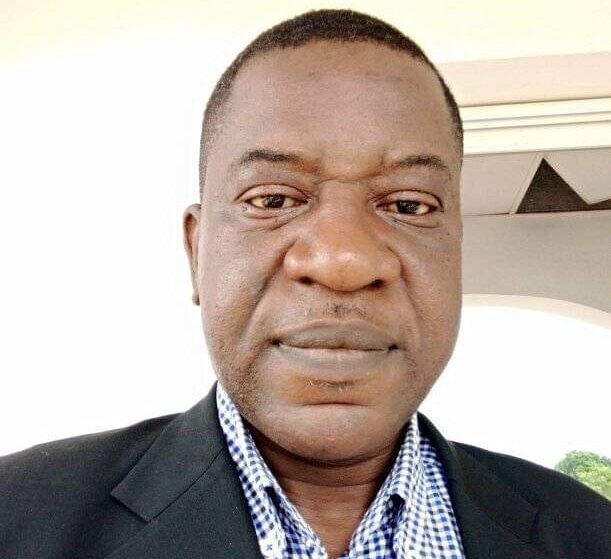By Cornelius Oguntola Melvin Deveaux
I have keenly followed the discussions relating to the proposed amendments to the Public Elections Act 2012, especially the amendment that concerns the introduction of a legislation to regulate the conduct of parliamentary elections under the district block PR system.
At the onset, let me say I find it bewildering that the arguments relating to the proposal for legislation in the Public Elections Laws to deal with the conduct of a proportional representation election system as provided for in Section 38A of the 1991 constitution have been skewed and have left the public more confused than before.
Section 38A (1) states: Where, under any law for the time being in force, a date for a general election of Members of Parliament has been appointed, but constituencies have not been established under subsection (3) of Section 38 for such election, the President may, after consultation with the Electoral Commission, direct that such election shall be conducted based on the existing districts in a manner to be known as the district block representation system instead of constituencies.
Let me first establish that conducting elections under the district block system is provided for in Section 38A of the 1991 constitution. But the Public Election Laws (i.e. the Public Election Act 2012) makes no provision in respect of this.
It is also important to note that the district block system is not an alternative to constituency-based elections as some people want the public to believe.
The conduct of elections under section 38A is contingent on certain existing conditions. My view is that the argument should have focused on whether the conditions exist to invoke section 38(A).
Regrettably, much of what has dominated the national conversation is jaundiced to mean a call for the total abandonment of the constituency-based elections in Section 38 of the 1991 Constitution.
All have been about the pros and cons of the constituency-based or majoritarian election system vis-à-vis the proportional representation-based election that we call the district block system.
I am baffled at the display of constitutional ignorance coming from various sections of society wanting to trade off Section 38 for Section 38A by some crafty insertion in the proposed Public Election Act 2022 and how politicians, academics, lawyers, and civil society activists have deliberately and maliciously created the misinformation and misunderstanding shrouding the debate vis-à-vis the applicability of Section 38A of the 1991 Constitution.
The need to include in our Public Elections Laws legislation to regulate the conduct of the district block system of election, provided for in Section 38A of the 1991 constitution is a progressive electoral reform.
The misunderstanding and misinformation which characterize the discussions must have germinated from statements made earlier by the President, the context of the ECSL proposal before Parliament, and comments from a host of others seeking to craftily do away with the constituency-based elections and those who are opposed to an election based on proportional representation.
First, the President has publicly and policy-wise expressed a preference for a PR system of representation and election over the constituency-based system of representation.
His intention to replace the constituency-based elections with PR elections is evident in his statements. This intention was made known in several instances, including the launching of the SLPP government white paper on the review of the 1991 constitution.
Second, the supposed object of the proposal from ECSL is to have a provision in the public elections law to regulate the conduct of PR elections as provided for in 38A of the 1991 constitution.
Nonetheless, the presentation speaks otherwise.
The ECSL Director of Legal Affairs, Fatorma Fah-Bundeh, in his presentation at the pre-legislation session on 20th June 2022, notes that there is no provision in the current Public Elections Law regulating the conduct of elections under the district block system. For all intent and purposes, the ECSL proposes that such a law is in the Public Elections Act 2022. However, when he advocates that the first past the post or constituency elections do not enhance national cohesion, it automatically means the object of the proposal is to replace the constituency-based system of an election on the basis that the PR system enhances national cohesion.
As established, conducting elections under the district block system is provided for in Section 38A of the 1991 constitution.
However, it is not an alternative to constituency-based elections, nor does this provision gives an open cheque to the President to determine at random when section 38A should be referenced when it comes to elections for ordinary Members of Parliament.
The conduct of elections under section 38A is contingent on certain existing conditions.
The conditions under which a district block system election can be proclaimed by the President are explained in section 38A (1).
These conditions include: (1) that a date for a general election of Members of Parliament must have been appointed; (2) that constituencies are yet to be established under subsection (3) of section 38 of the 1991 constitution.
If these two conditions exist, the President may, after consultation with the Electoral Commission, direct that such election shall be conducted based on the existing districts in a manner to be known as the district block representation system instead of constituencies.
My argument is to examine whether the conditions exist for the President to direct that the next general election is conducted based on the district block system.
As the case may be, 24th July 2023 has been announced as the date for the next general elections. It fulfills condition number one (i.e. date has been appointed for the next parliamentary elections).
The other condition concerns whether constituencies have been established or not in reference to section 38(3) of the 1991 constitution.
Section 38(3) reads: The boundaries of each constituency shall be such that the number of inhabitants thereof is as nearly equal to the population quota as is reasonably practicable.
The answer to this question cannot be plausible without reference to other provisions in Section 38 of the 1991 constitution.
According to highlights of Section 38 of the 1991 Constitution:
(1) Sierra Leone shall be divided into such constituencies to elect the Members of Parliament referred to in paragraph (b) of subsection (1) of section 74 of this Constitution … that every constituency established under this section shall return one Member of Parliament.
(2) The Electoral Commission shall review the division of Sierra Leone into constituencies at intervals of not less than five and not more than seven years and may alter the constituencies under the provisions of this section to such extent as it may consider desirable in the light of the review.
(3) The alteration of constituencies is done based on a census of the population of Sierra Leone.
(4) The alteration of constituencies comes into effect at the dissolution of Parliament after the alteration has been approved by Parliament.
The law is unambiguous as to the life span of a constituency.
First, any alteration to existing constituencies comes into effect at the dissolution of the Parliament that approved the alterations.
Second, any alteration to the current constituencies comes into effect at the dissolution of this Parliament in 2023.
Third, the current constituencies are still in effect since no alteration has been made and the current Parliament is yet to be dissolved.
Fourth, the current constituencies came into effect at the dissolution of the last Parliament in December 2017 after being ratified by the then Parliament.
Section 38(4) details when constituencies can be altered. It reads: The Electoral Commission shall review the division of Sierra Leone into constituencies at intervals of not less than five and not more than seven years, and may alter the constituencies under the provisions of this section to such extent as it may consider desirable in the light of the review.
If the current constituencies came into effect at the dissolution of the last Parliament in December 2017, the life span of the current constituencies begins at that point.
So if the current constituencies came into effect in December 2017 it follows that a review of constituencies as provided for in section 38(4) is not yet due since the not less than five years provision comes to maturity in December 2022.
Consequently, section 38(4) of the 1991 constitution becomes applicable after December 2022.
It implies that an alteration to current constituencies can only be done between December 2022 and December 2024.
Some ECOWAS protocols prohibits any change to election laws six months before the election date. This means that constituencies cannot be altered between December 2022 and July 2023.
But this does not mean constituencies do not exist. Constituencies cease to exist if they are either altered as per the provisions of the law or not altered at all after seven years of coming into existence.
We cannot therefore say constituencies do not exist especially when it is considered that the law does not prescribe for an alteration after the conduct of any census but not earlier than five years and later than seven years after the coming to effect of a previous alteration.
In conclusion, while I may not be against a legislation in the Public Elections Laws to regulate the conduct of elections under section 38A of the 1991 constitution, I am totally against the conduct of the next election for ordinary Members of Parliament under section 38A simple because the conditions necessary for such do not exist.
Therefore any attempt to conduct the next parliamentary elections on the basis of section 38A of the 1991 constitution is a violation of the 1991 constitution.
Certainly, we all know what this means: treason.













